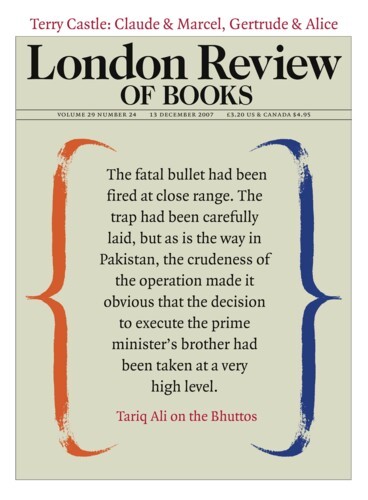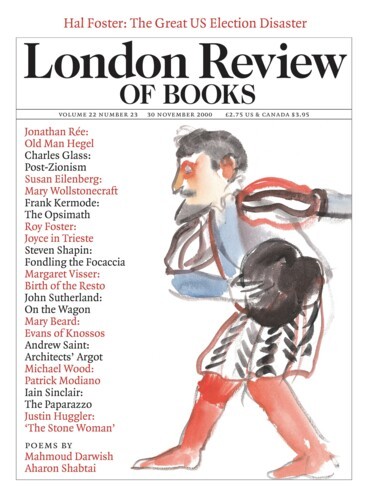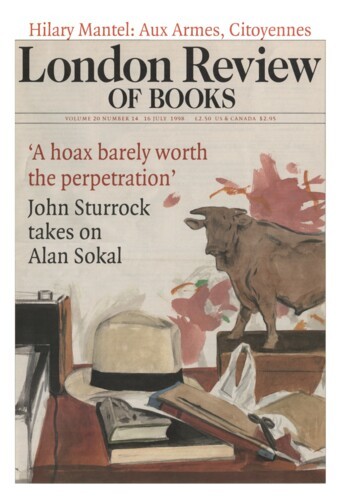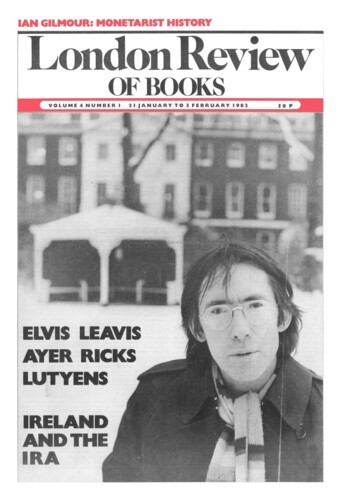Partnership of Loss: Ireland since 1789
Roy Foster, 13 December 2007
‘Nothing Dr Bew writes is without interest.’ The wearily Olympian judgment was delivered by a distinctly peeved F.S.L. Lyons, doyen of historians of modern Ireland, when faced 27 years ago with a short life of Charles Stewart Parnell which took implicit but cheeky issue with his own magnum opus on the Chief. The young Bew – Belfast-born and a graduate of People’s Democracy marches as well as of the Cambridge history faculty – had already published a radical marxisant version of the 1879-82 Irish Land War, stressing the only partly suppressed war of interests between large and small tenants as much as the struggle against the landlord oppressor, and casting a cold eye on the cloak of unity that nationalist historiography tried to throw over the enterprise. He would go on to write critiques both of the modern Irish state in the Sean Lemass era and of power relations in Northern Ireland (in collaboration with other figures from Northern Ireland’s leftist intelligentsia), to redefine the attempted politics of reconciliation in the Edwardian era and to continue the story of land struggle in the years just before World War One.




